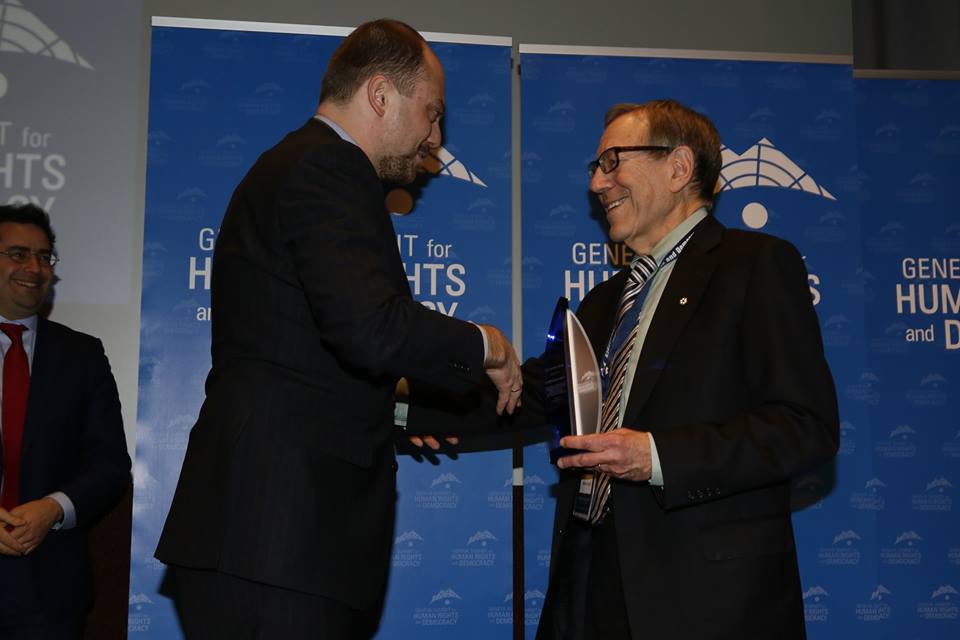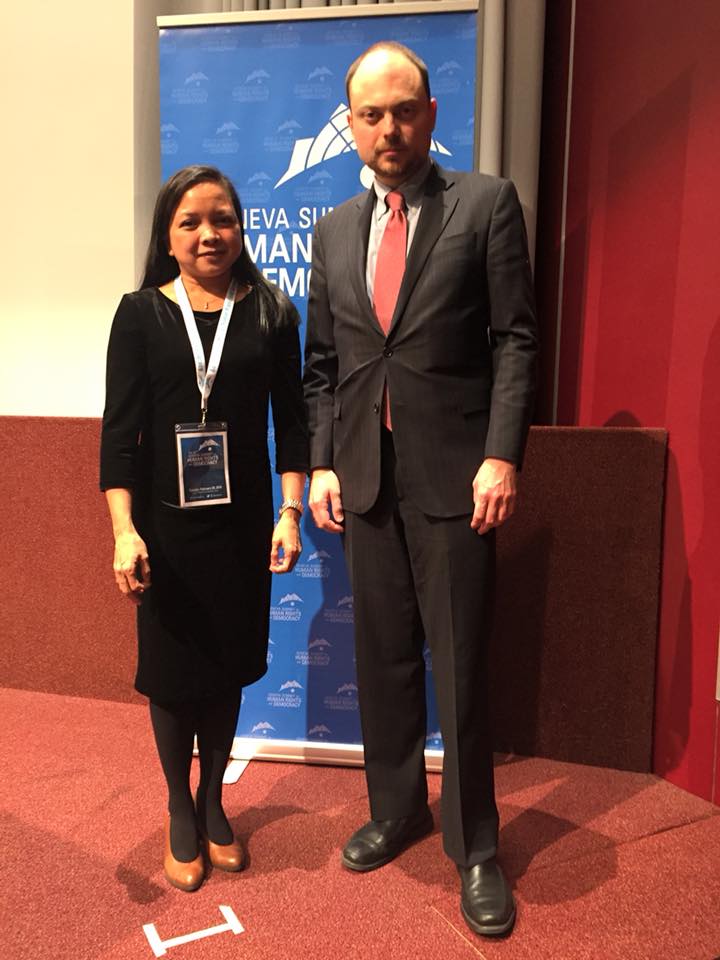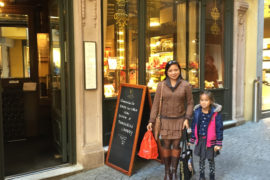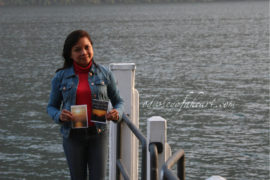
I listened carefully to his every word as they held close to the same message I would like my fellow kababayans, Filipinos, to reflect carefully, so I transcribed his speech through this article.
Thank you. Irwin, Thank you , dear friends thank so very much. I’m deeply thankful to the organisers, host, partners and sponsors of the Geneva Summit.
I’m deeply humbled to be receiving this award, and it is a special privilege to receive it from the hands of my dear friend, Professor Irwin Cotler, a torrent figure in the human rights movement I have worked with, on behalf such leaders: Nelson Mandela, Anatoly Sharansky, Jacobo Timmerman, and Andrei Sakharov.
For his work over the years, Irwin has been honoured with awards that has been too numerous to count but I do want to single out one in particular.
In March of 2014, by the order of Vladimir Putin, Irwin Cotler was placed under a Russian government travel ban, as Irwin himself had said, coming from the present Kremlin regime, it certainly is a badge of honour, and I know that one day it will be an honour for us to welcome Irwin Cotler in Russia when our country is finally free from this Authoritarian Kleptocracy.
Irwin, thank you for everything you do.
Russia is not usually the first country that comes to mind when people think of such notions such as liberty, democracy, of human dignity.
The prevailing stereotypes are the opposite. And yet, some of the strongest and some of the most inspiring leaders in the human rights movement, certainly the twentieth century have come from Russia.
And I think it’s telling, that Europe’s highest award for contribution to the fight for human rights that is given annually by the European Parliament, the Sakharov Prize for Freedom of Thought is named after a Russian citizen.
The story of Andrei Sakharov and the Soviet dissident movement is for me one of the most inspiring and ultimately one of the most optimistic stories of the twentieth century.
The story of a relatively small group of people, armed only with their word and a sense of dignity that in the end prove stronger than a mighty totalitarian state and a world’s most developed machine of repression.
It was never about numbers, as Sakharov himself had said, “It is not a case of arithmetic, but of a qualitative fact, bridging the psychological barrier of silence.”
It doesn’t take many to bridge that barrier.
In August 1968, as Soviet tanks rolled into Czechoslovakia and the Soviet government claimed a unanimous support among its citizens for the invasion.
Seven brave Russians came on to Red Square in Moscow to protest against it. They were arrested within minutes. They were all sent to prison, internal exile or psychiatric hospitals, but after what they did no one could say that all Soviet citizens supported the invasion of Czechoslovakia.
As a Prague newspaper literary Lifby wrote at that time: there are now at least seven reasons for which we will not be able to hate the Russian people.
A few years ago I interviewed one of those seven, Natalya Gorbanevskaya, she passed away since. It was for a documentary I was making for the Soviet dissident movement, and I asked her what motivated her to go to that Square, knowing for certain what price she would have to pay.
And I will never forget what she answered, she said, ‘for me, going to that demonstration was a selfish act. I wanted to have a clean conscience.’
This award is presented for courage. I don’t know if we are courageous. Stubborn maybe, and perhaps a little selfish in a sense that Natalya Gorbanevskaya meant it. But what we certainly are is unwilling to be complicit in the crimes of the regime that claims to speak on behalf of our country.
It is a powerful motivation. I know it was for Boris Nemstov, the leader of the democratic opposition in Russia. For years, his was the strongest and the loudest and the clearest voice against the authoritarianism, corruption, and aggressiveness of the Putin regime. He publicised abuses by the government officials, organised demonstrations, against election fraud, against domestic repression, campaign for international accountability in the forms of targeted sanctions of the human rights abuses, and when the Kremlin started another war, this time on Ukraine in 2014, he lead not seven but tens of thousands of people to the streets of Moscow in protest.
I remember that day well. The line of Muscovites who came to say no, to Mr. Putin’s war stretched for miles, down the boulevard drain, from Pushkin’s square to Sakharov avenue and when those of us in front have reached the end point, people were still lining up to go to the metal detectors at the beginning.
Boris Nemstov didn’t have to do what he did. A part of Russia’s top political establishment, member of the parliament, regional governor, first deputy prime minister, a one time heir to the Russian presidency, he could have easily settled for a quiet and comfortable existence under the present regime as so many others have. But he care about our country too much, to watch its future being destroyed by authoritarians and kleptocrats, and he did not want to be complicit.
He was smeared of state television as a traitor, physically assaulted by procreant groups, repeatedly arrested at peaceful demonstrations, but he would not relent. He was silenced the only way he could be, by five bullets in his back as he walked across the bridge in front of the Kremlin.
As Boris himself once said, “Freedom does not come cheap.”
It was the greatest privilege of my life to work with Boris Nemtsov for 15 years.He taught me with his own example that politics can be honest that you must always stand up for your principles whatever the cost.
I saw from a country’s history, the political cost and the personal cost of dissent in Russia today is high.
When Andrei Sakharov wrote his Nobel lecture which he was not allowed to go to Oslo in 1975, he named it ‘126 Prisoners of Conscience in the Soviet Union.’ Today according to memorial, we have 117 political prisoners in our country.
There are diverse groups, they include Oleg Sentsov, a Crimean film director who protested against the annexation.
Alexander Spakhov, a carpenter from the Moscow region who attended an anti-corruption rally.
Dimitri Butchenkov who was not even at the protest demonstration for which he is being tried.
Oleg Navalny, the brother of anti-corruption campaigner and banned presidential candidate, Alexei Navalny.
Alexey Pichugin, the remaining hostage of Yukos case, who almost after fifteen years, is now Russia’s longest serving political prisoner.
Sometimes we encounter more creative methods, twice in the past three years, in May 2015 and again February of last year, both times in Moscow, I experienced symptoms of severe poisoning that left me in a multiple organ failure in a coma, and a life support, it was certainly intended to kill. Both times, doctors told my wife that my estimated chance of survival is about five percent. The message was clear enough. But so is my response. Now for the second time, he will not see us run. He will not see us hide. He will not see us give up.
As Boris Nemtsov have always said, ‘This is our country. We have to fight for it.
And if we believe for these principles, we must be prepared to stand up for them.”We know that these principles are important in the people of Russia. We know that despite the long held stereotype that Russians are somehow uniquely unsuited or not ready for democracy and freedom. That all we need is a strong hand and a stern whip. That stereotype is shallow. It is insulting, but most importantly it’s not true.
Because every time, the Russian people could actually choose in a more or less free election, dictatorship and democracy, they always chose democracy.
In 1906 when the constitutional democrats autocratic in the post Duma election, in a constitutional assembly vote of 1917 when Bolshevik lost to proponents of parliamentary republic, in 1991 when democratic presidential candidate Boris Yeltsin defeated the communist party by 57% to 17.
Today we are often told, that Vladimir Putin is very popular among Russian citizens. That he is supported by 86%. That he is, to quote his own press secretary, “the absolute leader on the political olympus, with whom no one can seriously compete,” end of quote. That last statement is actually true. It is difficult to compete when you are in prison, in exile, or dead.
It is difficult to compete and receive many votes if you are not actually allowed on a ballot.
It is difficult to speak and hear the truth when all television channels are controlled by the state. But the next time someone tells you, that Vladimir Putin is popular, just ask them, why would such a popular leader is so afraid of a free election?
Your popularity is not worth much, if you have to back it up with such intimidation, censorship, and fraud. And yet despite all of these, there are more and more people people in Russia who are prepared to stand up to the corruption and abuses of Mr. Putin’s Kremlin.
I’ve met many of them as part of my work with Open Russia. A political movement that seeks to restore the rule of law, democratic election, and accountable government. Our work is mainly with the young people, the new generation of democratic activists, for our training and educational programs through projects in encouraging political participation, civic engagement, we want to empower them and help them become active, and informed citizens.
We want to help them gain the skills and experience they will need when they face the task of building a new Russia on the ruins of here another authoritarian system.
We are already seeing this new generation. In the last few months, thousands of people went to the streets, all across Russia to voice their protests at the pervasive government corruption, the lack of accountability, the sham elections, and the sheer arrogance of the same small group of people that has been now in power for almost two decades.
These protests took place in more than two hundred towns and cities, large and small, across eleven time zones from Leningrad to Kobarosk, and the vast majority of those who came are young people, university and high school students, many in their eighteens and early twenties, they are literally the future of Russia. They are also the people who are suddenly and in many cases born under Vladimir Putin. And yet, they are increasingly saying, “Enough!”
And in the end, there is not much that Mr. Putin will be able to do about that.
Of our friends in the democratic countries, we ask only one thing:
Please stay true to your values.
We are not asking for your support, it is our task to change Russia and we will do it ourselves.
The only thing we ask from you is that you do not support Mr. Putin, by treating him as a respectable partner on the world stage, and by allowing his cronies to use your countries as havens for their looted wealth.
Please don’t enable corruptions and human rights abuses in Russia by welcoming the perpetrators on your soil and in your banks.
Six years ago this month, Irwin Cotler hosted Boris Nemtsov in parliament hill in Ottowa , as he launched an effort to pass the Magnistky law in Canada. A law that would lay down a very simple principle that those who violate the most basic norms of democratic society in their own countries should not be entitled to enjoy the privilege of democratic societies in the West by traveling or holding assets there.
Despite the obstacles and the resistance, and the real politic, Irwin Cotler has succeeded and his measure is now the law of the land in Canada as it is in five other countries including the United States. It was a privilege to work with parliamentarians from these countries to help it make possible and I’m proud of my small part in this process.
And we hope that more democratic nations including the one which we are meeting today will take a principal stand and send the message: that crooks and abusers are no longer welcome.
And above all, please stop falling for that tired and dishonest stereotype that Russians are somehow uniquely unsuited, or not ready for democracy. We are suited, we are ready, and we will get there, just like you.
A Soviet dissident has shown us, all it takes in the end is a certain number of committed individuals who refuse to be complicit, who are prepared to stand up for their principles, and who succeed in bridging that barrier of silence.
– Vladimir Kara-Murza, Chairman of Boris Nemstov Foundation at #GS18
You can listen to his full speech from Geneva Summit official link:
Irwin Cotler, Vladimir Kara-Murza and Hillel Neuer at Geneva Summit 2018






Comments are closed.